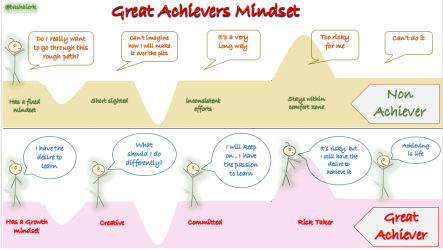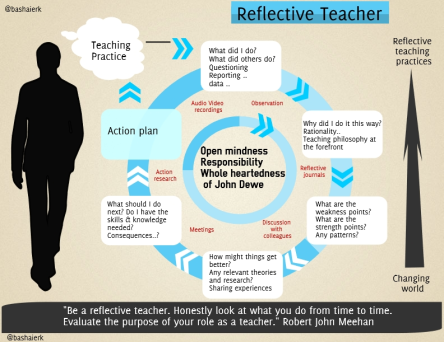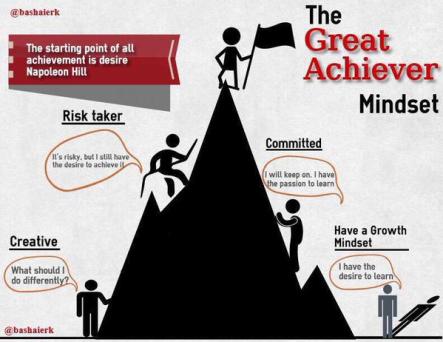“I have always been deeply moved by outstanding achievement and saddened by wasted potential” Carol Dweck Research of Stanford University psychologist, Carol Dweck and her colleagues led to the mindset idea that was introduced in the world renowned book ‘Mindset – The new psychology of success’. Based on years of research, Dweck identifies two types of mindset. A growth mindset and a fixed mindset. The core finding of the research Dweck and colleagues conducted is that individuals with a growth mindset perceive intelligence as an ability that can be developed with practice. This shifts their attention to developing their intelligence than worrying about how to prove it right. They put hard efforts and maintain persistency to reach what they aim at. At the opposite, individuals with fixed mindset look at their intelligence as an inborn trait. They perceive it as a fixed one. Individuals with a fixed mindset believe that their intelligence is simply an inborn trait—they have a certain amount, and that’s that.… In contrast, individuals with a growth mindset believe that they can develop their intelligence over time (Blackwell, Trzesniewski, & Dweck, 2007; Dweck, 1999, 2007). Dweck discusses that these two mindsets crucially affect learning behavior: For one thing, when students view intelligence as fixed, they tend to value looking smart above all else. They may sacrifice important opportunities to learn—even those that are important to their future academic success—if those opportunities require them to risk performing poorly or admitting deficiencies. Students with a growth mindset, on the other hand, view challenging work as an opportunity to learn and grow. (Dweck 2010) The growth mindset need to be embraced by not only students but all stakeholders of education: school leaders, teachers and parents. This article focuses on teachers’ growth mindset and how it can flourish their teaching profession. Mindsets is essential for individual progress in life. It sums all beliefs about individual’s potential, intelligence and traits. The crucial question to be asked is whether we can change these beliefs and go beyond our mind limitation. Robert Sternberg, the present-day guru of intelligence writes that the major factor in whether people achieve expertise “is not some fixed prior ability, but purposeful engagement.” Or, as his forerunner, Binet, recognized, it’s not always the people who start out the smartest who end up the smartest. (http://www.mindsetonline.com) How can teachers develop their own growth mindset? This visual that I have created sum it all up as will be discussed in the following lines  We all have the fixed mindset voice in our heads. This is the voice visualized in the top part of the illustration shared above. We need to start a conversation with this voice and to prove it wrong as illustrated in the bottom part of the visual. When you approach a challenge or if you are trying to overcome a setback, this voice will become louder and louder. However you can lower the volume and start looking for other alternatives than blaming your intelligence and abilities. Just keep in mind that it is a learning journey in which you gain experiences. The experience will cultivate more skills which will make you more capable and intelligent. Your desire to learn will keep you moving forward on the bumpy path. Start the conversation with the following arguments to defeat the inner voice of the fixed mindset.
We all have the fixed mindset voice in our heads. This is the voice visualized in the top part of the illustration shared above. We need to start a conversation with this voice and to prove it wrong as illustrated in the bottom part of the visual. When you approach a challenge or if you are trying to overcome a setback, this voice will become louder and louder. However you can lower the volume and start looking for other alternatives than blaming your intelligence and abilities. Just keep in mind that it is a learning journey in which you gain experiences. The experience will cultivate more skills which will make you more capable and intelligent. Your desire to learn will keep you moving forward on the bumpy path. Start the conversation with the following arguments to defeat the inner voice of the fixed mindset.
- Remember that teaching is a Mission not a profession. No matter how this become overwhelming over time it will become your fuel that ignites your efforts and make them worthy
- It’s a question of hard efforts and a matter of time before you earn the needed skills to make it happen.
- Efforts need to be consistent as you have the desire to move forward
- While it’s you that will beat the fixed growth mindset voice, others can help you to speed your learning process and to develop your capabilities. Collaboration and learning from others will help you all along the way
- Failure is not the end of the path, it is just another milestone in your journey
- Build your personal learning network. it’s your supply that will never run out
- Use technology to develop your own personalized professional development
- Try new ideas that might work better for you. Your passion will help you to decide which new idea are the proper ones.
- Seek challenges not success. This way you will foster your growth mindset
- Evaluate your progress not your success. The focus should be your efforts not your abilities
- Foster a growth mindset culture in your classroom which will help you to maintain yours
- Reflect and reflect. The illustration below will help you to have things sorted out
 Everyone can be a great achiever if s/he is willing to develop her/his intelligence, traits and abilities to be one. If s/he is willing to wake her/his potential.
Everyone can be a great achiever if s/he is willing to develop her/his intelligence, traits and abilities to be one. If s/he is willing to wake her/his potential.  http://www.ascd.org/publications/educational-leadership/sept10/vol68/num01/Even-Geniuses-Work-Hard.aspx September, 2010. Accessed July, 23rd 2015. http://www.mindsetonline.com/whatisit/whypeoplediffer/ Accessed July, 23rd 2015. Copyright 2015 Bashaer M. Al Kilani
http://www.ascd.org/publications/educational-leadership/sept10/vol68/num01/Even-Geniuses-Work-Hard.aspx September, 2010. Accessed July, 23rd 2015. http://www.mindsetonline.com/whatisit/whypeoplediffer/ Accessed July, 23rd 2015. Copyright 2015 Bashaer M. Al Kilani
Pingback: How To Introduce Growth Mindset To Your students – Part (1) « E-Learning